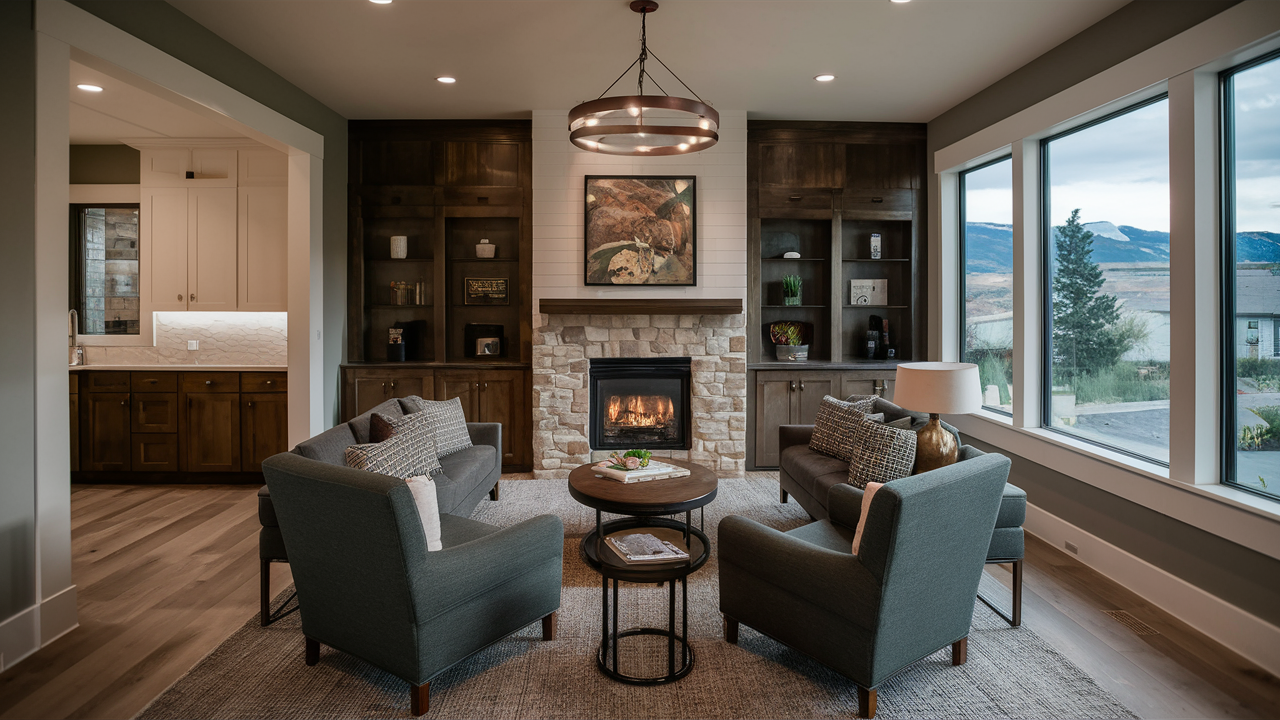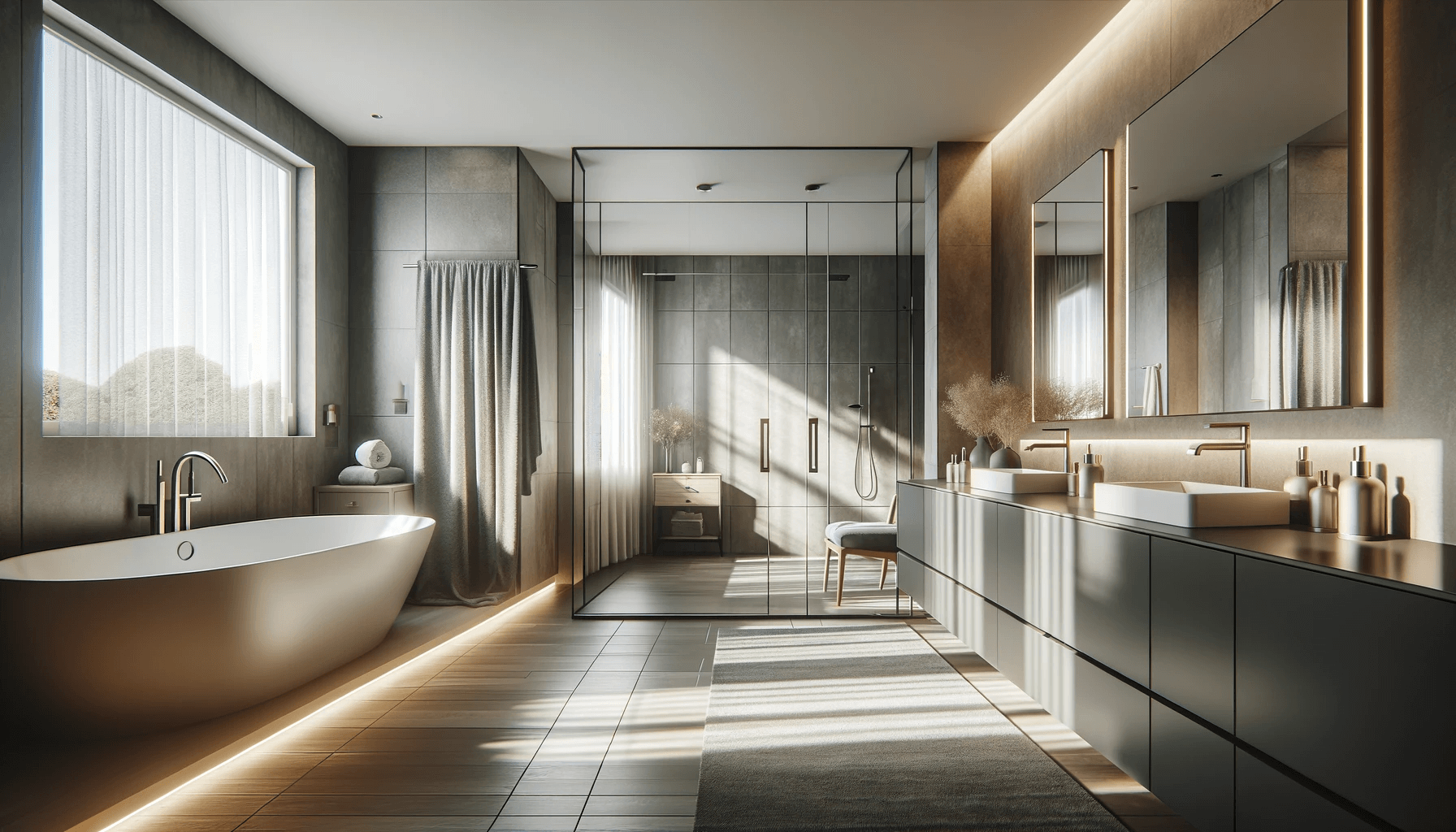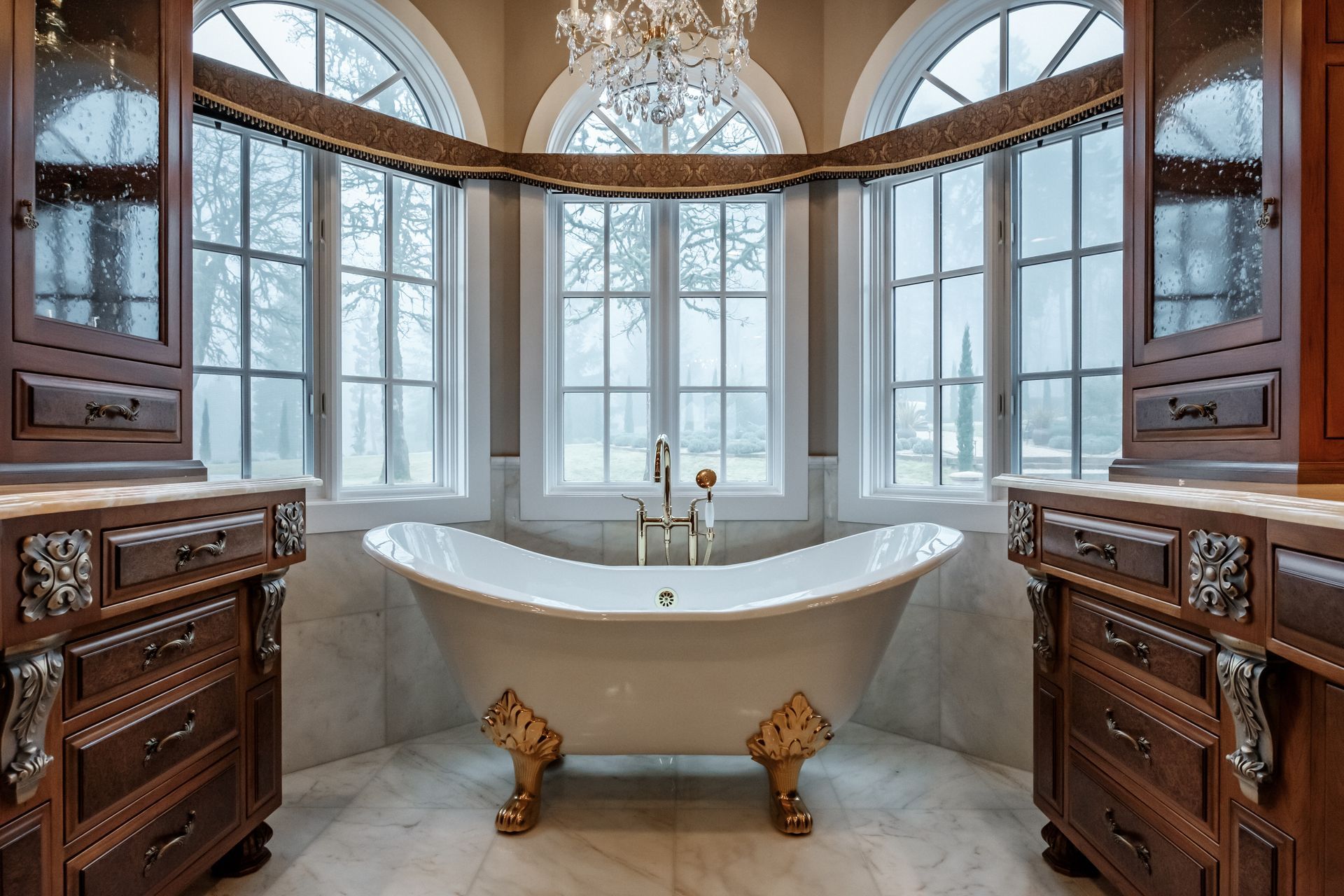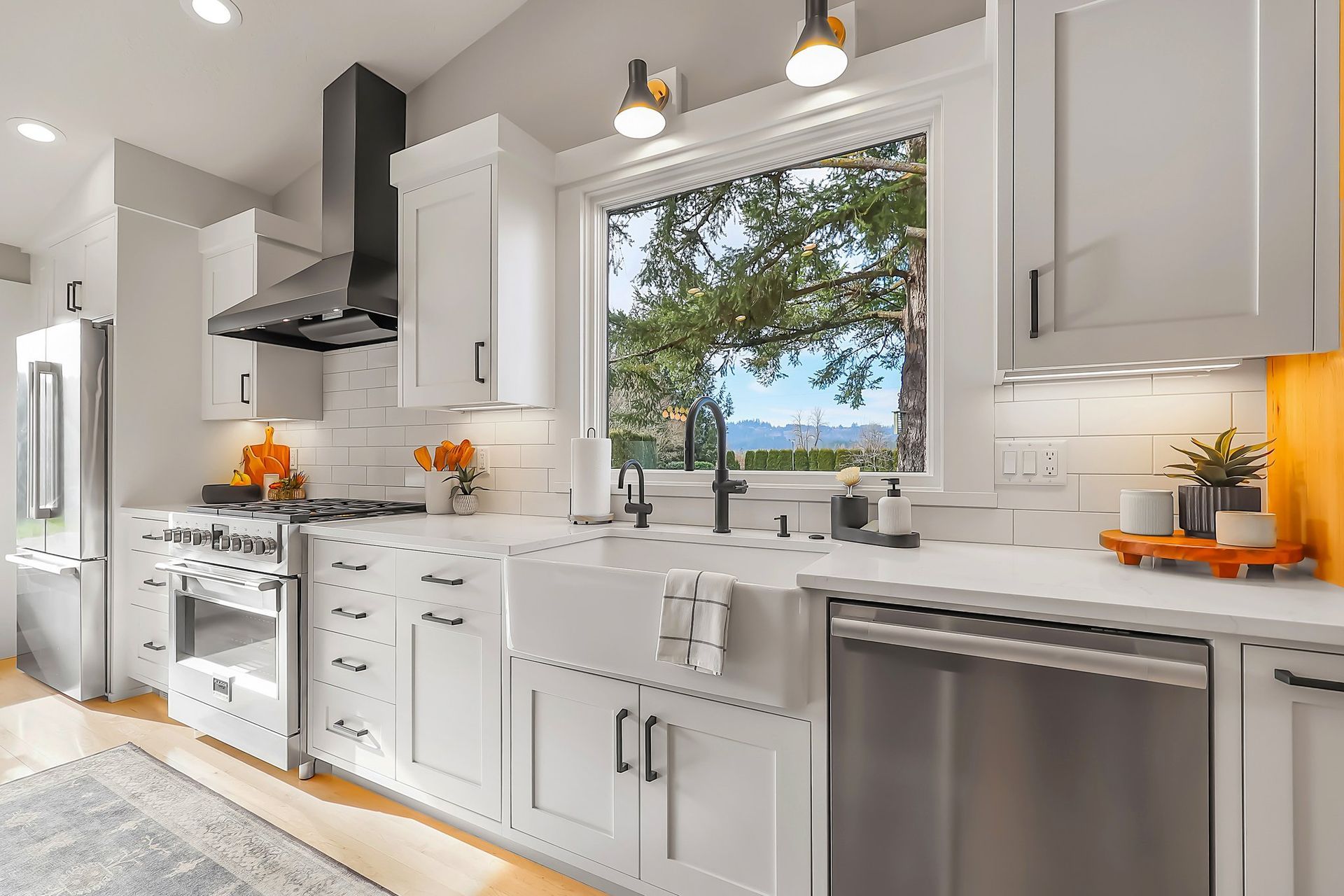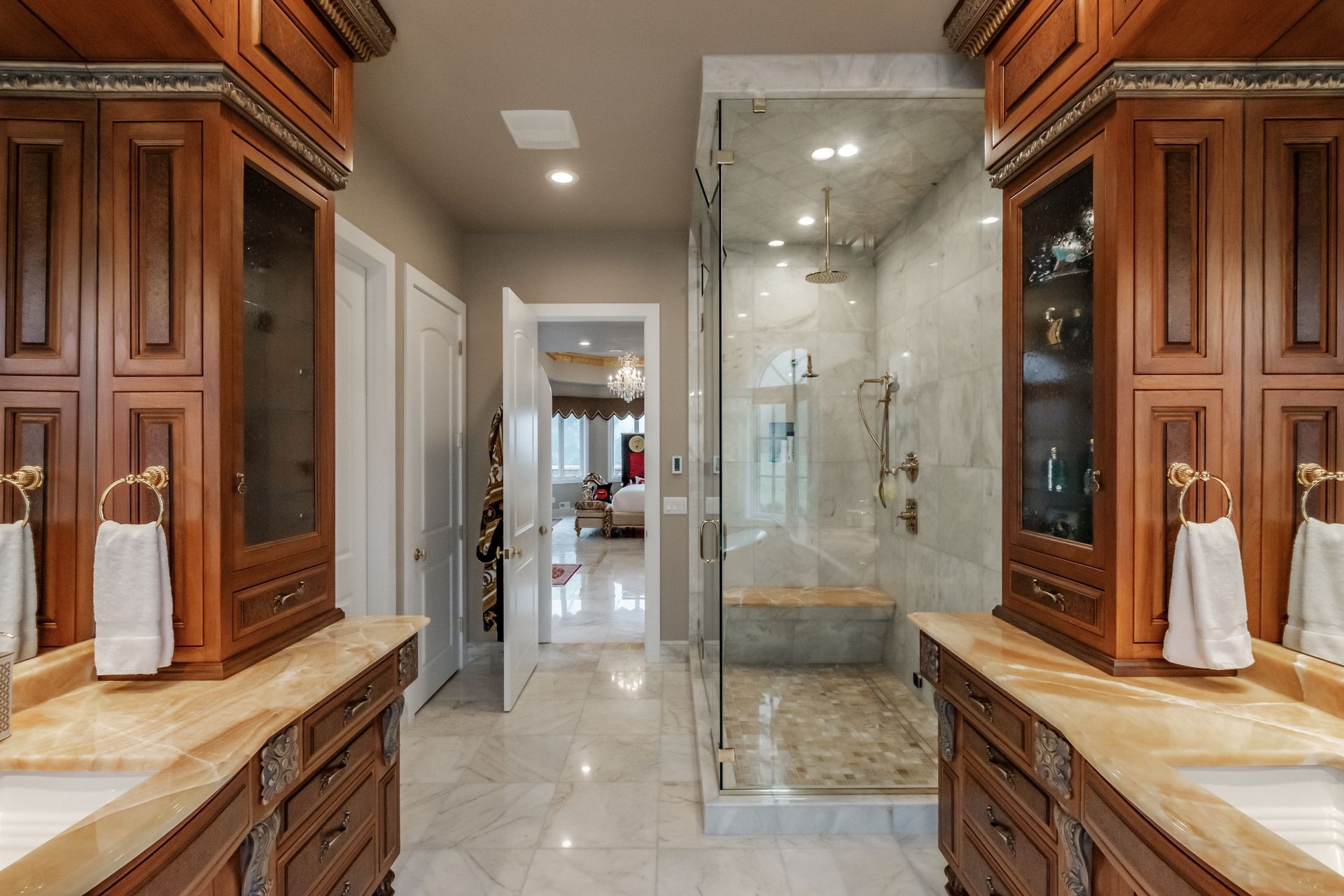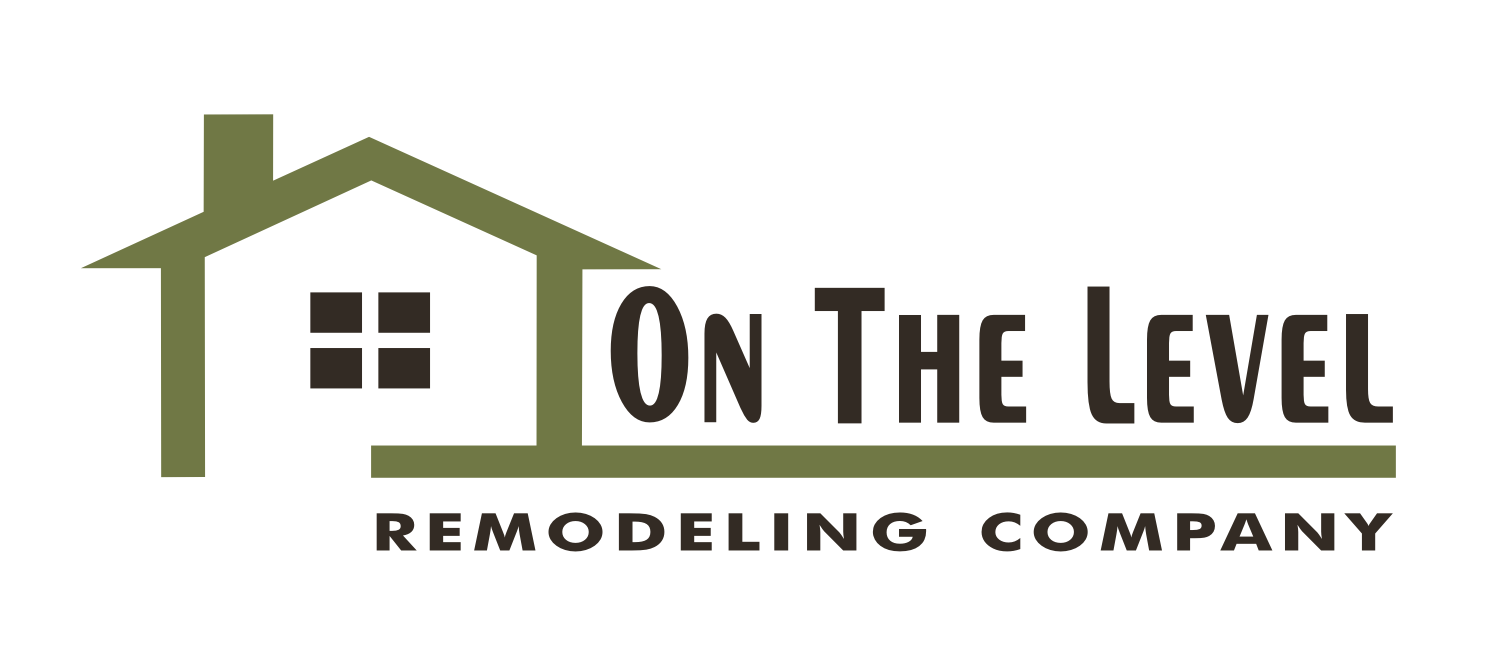How to Plan a Kitchen Remodel: Step-by-Step Guide
When it comes to planning a kitchen remodel, there are a lot of things to consider. From setting up a budget to choosing the right professionals, there are many steps involved in the process. In this blog, we will provide you with a step-by-step guide on how to plan your kitchen remodel. We will discuss how to determine your must-haves and set a project timeline, estimate costs, allocate funds, and choose the right professionals. We will also cover the demolition process, including safe practices and what to expect. Additionally, we'll delve into plumbing, electrical, and lighting considerations, including professional installation or DIY options and safety measures. Finally, we'll go over the installation process and finishing touches such as cabinets, countertops, backsplash options and flooring choices that can completely transform your kitchen space. And if your remodel goes over budget? We have some tips for that too!
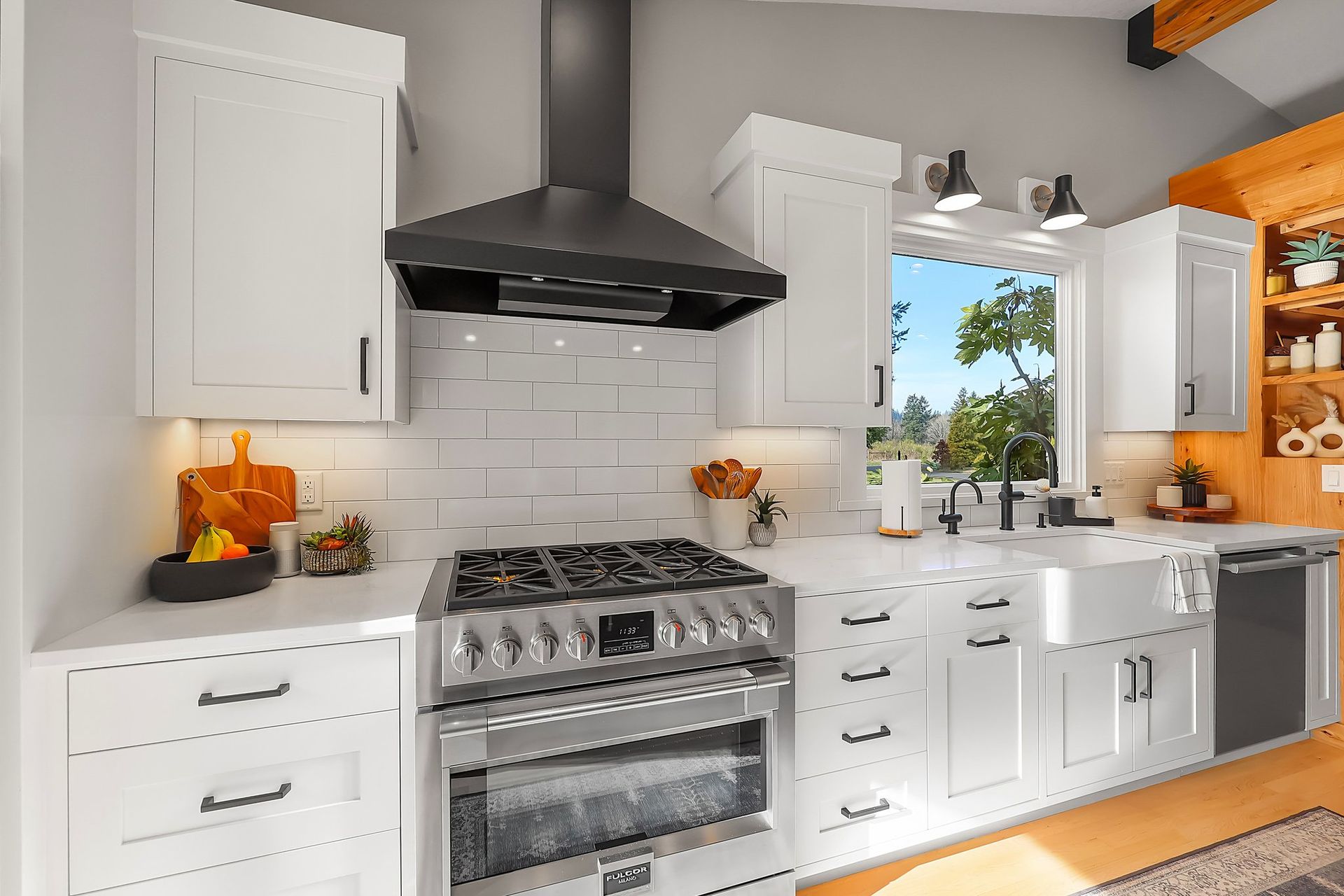
Planning Your Kitchen Remodel
When embarking on a kitchen remodel, it's essential to start by determining your renovation goals and priorities. Consider the size of your kitchen to plan for a layout that maximizes functionality. Researching kitchen design trends can also inspire your remodel and help you stay up to date with current styles. Working with a kitchen designer like On The Level is a great way to create a layout that meets your specific needs. Remember to take your time during the planning process to ensure a successful renovation in the long run.
Determining Your Must-Haves
When embarking on a kitchen remodel, it's important to determine your must-have features. Start by making a comprehensive list that includes cabinet hardware, appliances, and any other elements you consider essential. Once you have your list, prioritize your wishes to ensure that they align with your budget. Think about your lifestyle as well when selecting countertop materials and finishes. Take the time to research different cabinet doors to find the perfect style that suits your vision for your dream kitchen. Lastly, consider your long-term needs to ensure that your kitchen remodel is future-proof.
Setting A Project Timeline
To ensure an organized kitchen renovation, it is essential to determine a project timeline. Consider the additional time required for electrical work, plumbing, and other upgrades. By planning your remodel around your availability, you can minimize disruption to your daily routine. Consulting with a general contractor will help you create a realistic timeline that takes into account all necessary tasks. It's also wise to allow extra time for unexpected issues that may arise during the renovation. Setting a project timeline ensures that everything progresses smoothly and keeps you on track.
Setting Up Your Budget
When planning a kitchen remodel, setting up your budget is an essential step. Start by estimating the overall costs of your project to create a realistic budget. Consider additional factors such as backsplash supplies and paint colors that may impact your expenses. Allocate funds for kitchen appliances, cabinetry, flooring, and fixtures, keeping in mind that cabinets typically make up 25-30 percent of the remodeling budget. To make the most of your budget, prioritize spending on the areas of your kitchen that are most important to you. By carefully planning your budget, you can ensure that your kitchen remodel stays within your financial means. On the Level can help you every step of the way in this process.
Estimating Costs
When planning a kitchen remodel, it's important to estimate the costs involved. Start by researching the average cost of a kitchen remodel to get a general idea of expenses. Additionally, get quotes from different contractors to compare prices and services. Consider the cost of new kitchen cabinets, countertops, appliances, and flooring. Don't forget to budget for additional expenses, such as electrical work and plumbing. Consulting with a kitchen designer can also help you get a better estimate of your remodeling costs. By carefully estimating costs, you can better plan your kitchen remodel and ensure that you stay within your budget.
Allocating Funds
When planning your kitchen remodel, it's crucial to allocate funds wisely. Start by determining how much money you want to invest in your project. Consider your long-term financial goals and set a budget that aligns with them. It's also essential to have a contingency fund for unexpected expenses that may arise during the remodeling process. Prioritize your remodeling goals and allocate funds accordingly to make the most of your budget. Consulting with a financial advisor can provide valuable guidance to ensure your budget aligns with your overall financial plan. By carefully allocating funds, you can create the kitchen of your dreams without breaking the bank.
Choosing the Professionals
When planning a kitchen remodel, it's crucial to choose the right professionals to bring your vision to life. On The Level, a reputable general contractor, can oversee the project and manage subcontractors, ensuring everything runs smoothly. Collaborating with a skilled kitchen designer from On The Level allows you to create a layout that meets both your needs and style preferences. If you're looking for luxurious projects, On The Level is the perfect fit. Additionally, consulting with an interior designer can help you select the best finishes and accessories for your new kitchen. Researching and interviewing professionals, checking their references and portfolios, ensures you find trustworthy experts with a solid track record.
Hiring a Contractor
When embarking on a kitchen remodel, it's essential to hire a contractor who specializes in kitchen remodeling. At On The Level, we always recommend getting multiple bids from different contractors to compare prices, timeline, and scope of work. This might sound crazy, but we know when you see the quality we deliver at the competitive prices we offer, its an incredible opportunity. To protect yourself, make sure to check the contractor's licensing, insurance, and certifications. Asking for references is also crucial as it allows you to get feedback from previous clients. Lastly, clear communication is key. Clearly communicate your expectations to the contractor to avoid any misunderstandings during the project.
Working with Designers
Collaborating with an interior designer when planning a kitchen remodel is essential to bring your vision to life. Communicate your design preferences, budget, and timeline with the designer to ensure they understand your needs. Utilize their expertise in interior design to help you select the right materials, colors, and fixtures for your kitchen. Regularly review design drafts and provide feedback to refine your remodel plan. Open communication throughout the process will ensure a smooth collaboration with your designer. Their knowledge and guidance will ultimately result in a stunning and functional kitchen that meets your unique requirements. We an help you in every step of the design process.
The Demolition Process
When planning a kitchen remodel, it's important to carefully consider the demolition process. To minimize disruption to your daily routine, plan a demo timeline that works for you. Hiring a professional for the demolition work ensures safety and efficiency. Before the demo begins, prepare your kitchen by removing appliances, accessories, and cabinet contents. It's crucial to protect your flooring and appliances during the demolition to prevent any damage. And once the demo is complete, dispose of debris responsibly to keep your remodeling space clean and organized. By following these steps, you can ensure a smooth and successful demolition process.
Safe Practices
When planning a kitchen remodel, it is essential to prioritize safety to avoid accidents. Ensure proper ventilation to minimize exposure to harmful fumes. Use protective gear like gloves and goggles when handling tools or chemicals. Follow electrical safety guidelines to prevent shocks or fires. Keep a first aid kit handy for minor injuries. By adopting safe practices, you can create a secure environment during your remodel. Taking precautions not only protects you and your family but also ensures a smooth and successful renovation process. Remember, safety should always be the first priority.
What to Expect
To ensure a successful kitchen remodel, it's important to understand what to expect throughout the process. First and foremost, familiarize yourself with the timeline of your project to manage your expectations effectively. Keep in mind that unexpected delays or additional costs may arise along the way, so be prepared for them. Clear and open communication with your contractor is crucial to ensure that your design preferences are met. During the remodel, expect some noise, dust, and disruptions to your daily routine. By staying involved in the decision-making process, you can ensure that your remodel meets your expectations and turns out exactly as you envision.
Plumbing, Electrical, and Lighting Considerations
Assessing your plumbing needs is crucial when planning a kitchen remodel. It's recommended to consult a professional to determine if any upgrades or repairs are required. Similarly, careful planning of the electrical layout is necessary to ensure that there are enough outlets, lighting fixtures, and appliances can be accommodated. Opting for energy-efficient lighting options can help reduce long-term utility costs. To meet safety standards, it's advisable to consult a licensed electrician for your electrical work. Coordinating your plumbing, electrical, and lighting plans will help avoid conflicts during installation.
Professional Installation or DIY
When planning a kitchen remodel, one of the key decisions you'll need to make is whether to go for professional installation or tackle the project yourself. Evaluating your skills, time, and budget will help you determine the best approach. Hiring a general contractor can save you time and ensure a high-quality installation, especially if you're not confident in your abilities. On the other hand, opting for DIY remodeling can be cost-effective, but be prepared to invest time, effort, and research to get it right. Consider hiring a kitchen designer to assist with layout, functionality, and design choices, and don't forget to research local building codes and permits to ensure compliance.
Safety Measures
When planning a kitchen remodel, it's important to consider safety measures to prevent accidents and ensure the well-being of everyone in your home. One way to promote safety is by installing cabinet hardware such as childproof locks, which can prevent accidents and keep your kitchen supplies secure. Additionally, when determining your kitchen layout, take into account the size of your kitchen to ensure functionality and safety. Investing in solid wood or stainless steel cabinet doors can also enhance safety, as they are more durable and resistant to damage. By using the right tools and equipment during the installation process, you can minimize the risk of injuries. Lastly, be cautious of paint colors, flooring materials, and countertop choices to avoid potential health hazards.
Installation and Finishing Touches
Choose cabinets, countertops, and backsplash supplies that complement your kitchen design. Select flooring options, such as ceramic tiles or laminate, based on your budget and style preferences. Pay attention to plumbing fixtures, electrical outlets, and appliances to ensure functionality and convenience. Coordinate with plumbers, electricians, and general contractors to schedule installation and avoid conflicts. Consider additional upgrades, such as a kitchen makeover, to enhance your kitchen's focal point. By carefully considering these installation and finishing touches, you can create an interior design that not only looks beautiful but also meets your practical needs and preferences. This is the perfect time to bring your vision to life and transform your kitchen into the heart of your home.
Cabinets, Countertops and Backsplash
When planning a kitchen remodel, it's important to consider the cabinets, countertops, and backsplash. Determining your budget and prioritizing your needs and wants will help guide your choices. Research different types of cabinets, countertops, and backsplash materials that fit your style and budget. Keep in mind the layout and functionality of your kitchen when selecting these elements. Hiring a contractor or installer with experience in kitchen remodeling can ensure a professional finish. Don't forget about lighting, appliances, and flooring when planning your remodel. Taking these factors into account will help create the perfect kitchen space for you.
Flooring Options
When planning a kitchen remodel, it's important to explore various flooring options to find the perfect fit for your space. Consider factors like durability, maintenance, and cost when selecting materials. Take into account your kitchen's layout, size, and overall design to choose a flooring option that complements your style. Consulting with flooring experts or showrooms can help you gain a better understanding of your choices and any additional cost considerations. It's also essential to keep your long-term budget in mind and select flooring that will stand the test of time. By carefully considering these factors, you can ensure that your kitchen remodel includes the ideal flooring option.
What Should You Do If Your Remodel Goes Over Budget?
If your kitchen remodel goes over budget, reassess your financial plan to identify areas where you can cut costs. Openly communicate with your contractor to find cost-effective solutions. Consider prioritizing essential upgrades and explore financing options if needed. Adjust your timeline accordingly.
Conclusion
Planning a kitchen remodel can be an exciting and overwhelming process. By following a step-by-step guide, you can ensure a smooth and successful renovation. Start by determining your must-haves and setting a project timeline. Next, set up a budget by estimating costs and allocating funds. Choose the right professionals, such as contractors and designers, to help bring your vision to life. During the demolition process, prioritize safety and know what to expect. Consider plumbing, electrical, and lighting considerations, whether you opt for professional installation or DIY. Finally, focus on installation and finishing touches, such as cabinets, countertops, backsplash, and flooring options. Remember, if your remodel goes over budget, it's important to reassess and make necessary adjustments. Good luck with your kitchen remodel!
